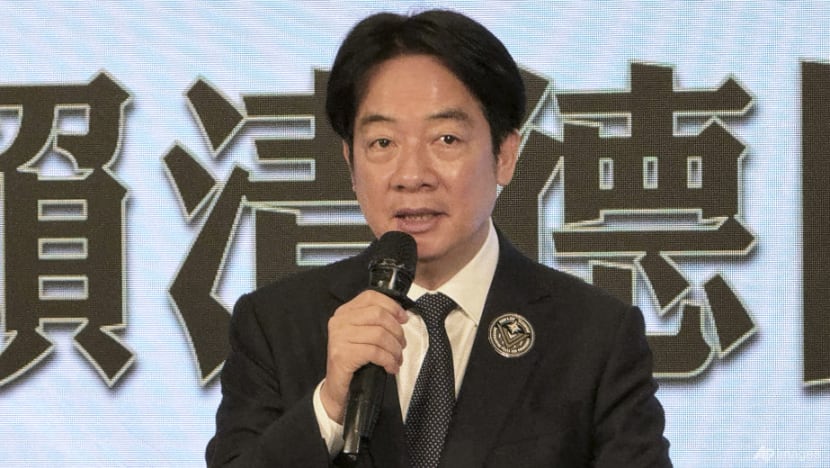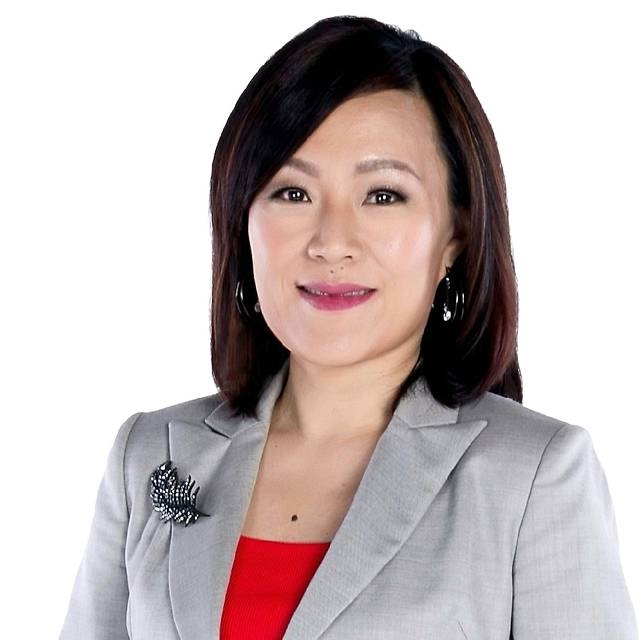Taiwan’s President Lai faces pressures abroad, at home as he marks one year in office
William Lai Ching-te has vowed to protect Taiwan's security and industries, as the island navigates ongoing tariff negotiations with the US and growing pressure from China.


This audio is generated by an AI tool.
TAIPEI: As Taiwan’s President William Lai Ching-te begins his second year in office, his minority government is grappling with mounting challenges both domestically and internationally.
Cross-strait relations are tense as China continues to pile increased military pressure on Taiwan, fuelled by Beijing’s loathing of Lai, who is a staunch defender of Taiwan’s sovereignty.
His administration is also navigating heightened uncertainties over ties with its key ally the United States, amid an increasingly volatile global trade landscape brought on by US President Donald Trump’s tariff war.
At home, Lai is facing simmering dissatisfaction from the public, with one recent opinion poll putting his disapproval rating at 45.7 per cent – the highest since he took office a year ago.
CROSS-STRAIT TENSIONS
In his speech marking one year in office on Tuesday (May 20), Lai called for peace and dialogue with China, warning that war has no winners.
But he also highlighted the need to continue strengthening Taiwan’s defences, saying that preparing for war is the best way to avoid it.
“As long as there is mutual respect and dignity, Taiwan is very willing to engage in exchanges and cooperation with China,” Lai said during his address at the presidential office in Taipei.
“We aim to replace blockade with dialogue, and to replace confrontation with conversation, moving towards a direction of peaceful coexistence and mutual prosperity.”
Observers said Lai’s remarks on cross-strait relations was muted in contrast to his inauguration speech a year ago, when he mentioned China several times and used terms that Beijing considers as implying Taiwan's equality with China.
In the months that followed, Beijing made its displeasure known by stepping up military drills in the waters and airspace near Taiwan.
Beijing – which sees Taiwan as part of its territory – has previously branded Lai a "separatist" for his rhetoric and blamed him for cross-strait tensions, rebuffing his offers for talks.
James Yifan Chen, an assistant professor at New Taipei City’s Tamkang University, said the Taiwanese president likely steered clear of the issue in his anniversary speech to avoid risking Beijing’s response with more military drills.
“Beijing's military action against Taiwan … creates the image that under Lai’s administration, cross-strait relations have gone from bad to worse,” he told CNA’s East Asia Tonight programme.
“So, he knows if he talks too much about China, especially in (a) provocative way, then China may respond again.”
DOMESTIC POLITICS
In the past year, Lai has taken a much tougher stance against China than his predecessor Tsai Ing-wen, even though he is governing from a weaker position with a minority government.
In the Legislative Yuan – Taiwan's parliament – many of his policies have been blocked by the opposition.
To take back control of the parliament, Lai's ruling Democratic Progressive Party (DPP), working with civic groups, has launched a laborious impeachment process against dozens of opposition lawmakers.
Professor Huang Kwei-Bo of the National Chengchi University said the DPP’s focus on political power plays could expose Taiwan to greater external economic and security risks.
“Eventually, the public may come to realise that regardless of the outcome of the so-called mass impeachments, Taiwan may be entering another precarious phase,” cautioned the diplomacy professor.
TAIWAN-US TIES
Already, Taiwan has found itself in uncharted waters with Trump's recent tariff policies. Despite being close allies, Taiwan was hit with a steep tariff of 32 per cent on all imports into the US.
A 90-day pause later put in place by Trump has allowed an opportunity for trade partners to negotiate with Washington.
Taiwan was America’s seventh largest trading partner last year, with total trade at NT$4.832 trillion (US$158.6 billion). Top sectors in Taiwan that export to the US are data processing equipment, integrated circuits, agriculture, electronics and other components.
A historic surge in the value of the New Taiwan dollar has also sparked fears that the island is surrendering control of its economic policy to appease the Trump administration's obsession with balanced trade.
Huang added that with Taiwan Semiconductor Manufacturing Co (TSMC) rushing to invest in America, the island could lose “all its bargaining chips in its dealing with the US”.
The semiconductor giant is the world's largest contract chipmaker and a leading supplier to major US hardware manufacturers.
In March, it announced plans to make a fresh US$100 billion investment in the US that involves building five additional chip facilities there in coming years.
Tamkang University’s Chen said that since Trump took office, Washington has been prioritising trade over the security interests of its allies.
This is especially in contrast with former President Joe Biden’s administration, which had shown stronger and more direct support for Taiwan.
“The US seems to be more urgent to negotiate a trade deal with China. Taiwan is not yet on the radar of the US’ strategic planning yet. The Lai administration has to spend much more work to get connected with the US administration,” Chen said.
“I think Taiwan should try to find a way to co-exist with China … and balance its approach between the US and China.”
Experts have called the current political landscape arguably one of the most complex that any Taiwanese leader has faced in years.
Whether Lai can move from survival to success may hinge not just on stabilising ties with Beijing or Washington, but also on winning the political battles at home, they added.
















